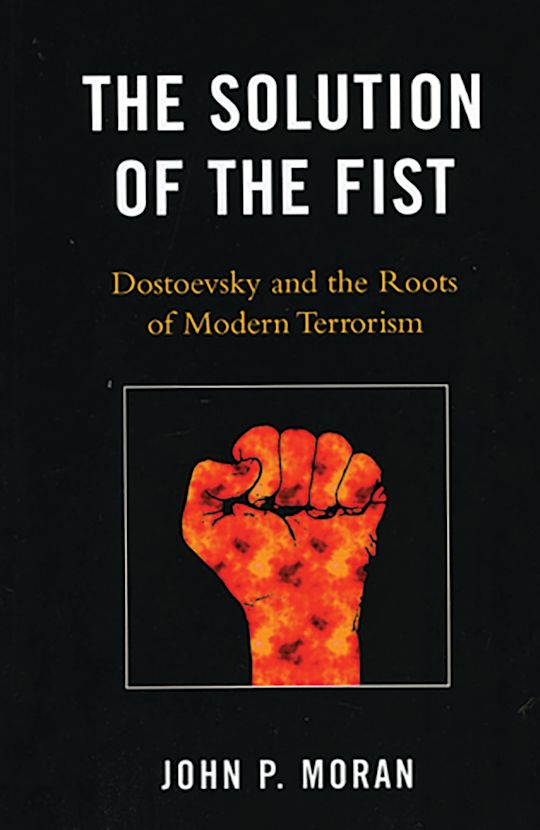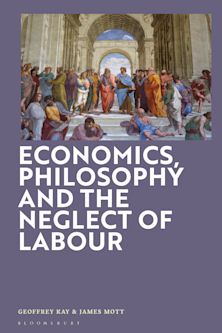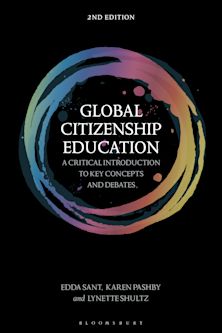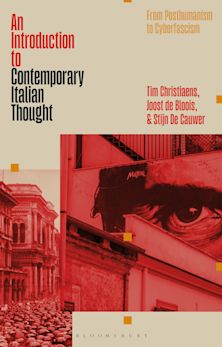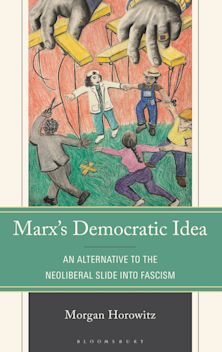- Home
- ACADEMIC
- Philosophy
- Social and Political Philosophy
- The Solution of the Fist
This product is usually dispatched within 1 week
- Delivery and returns info
-
Free CA delivery on orders $40 or over
You must sign in to add this item to your wishlist. Please sign in or create an account
Description
The first novel ever written about terrorism, Dostoevsky'sThe Demons is also the most instructive, for in it he addresses-better than any writer before or since-the two persistent riddles of terrorism: why are terrorists so new to our civilization, and how is it that they can kill others so easily in the name of a political idea? As a first-generation observer of terrorism, Dostoevsky came to the conclusion that this new political movement was the product ofmodern culture, politics, and psychology. He felt that modernity created a unique shame and humiliation that fueled terrorism. The "demons" that he brings to life in this novel are not fire-breathing monsters, but gracious, subtle, cosmopolitan, rational, and scientific. They are also murderers, rapists, arsonists, and terrorists.
For Dostoevsky, these "demons were ultimately the product of cosmopolitan Paris, for it was there that individuals first deified reason and thus abandoned the ancient sources of morality-the ancient Gods. By replacing the ancient with the modern gods of atheism, science, and liberalism, modern societies have abandoned any sort of moral constraint that helped to keep violence and tyranny in check. This created the new, modern, nihilistic world of terrorism.
If modern shame and humiliation are truly at the heart of modern terrorism, twenty-first century readers can gain a clearer insight into terrorist motivations through understanding Dostoevsky's work.The Solution of the Fist: Dostoevsky and the Roots of Modern Terrorism aims to aid in this process through an in-depth analysis of his work and a careful explanation of the context in which nineteenth-century readers would understand it.
Table of Contents
Chapter 2. Cosmopolitanism and Its Discontents
Chapter 3. Cosmopolitan Politics
Chapter 4. The Psychology of Cosmopolitanism
Chapter 5. The Paradox of Nihilistic Terrorism
Chapter 6. Demonic Shame
Product details
| Published | Jul 16 2009 |
|---|---|
| Format | Hardback |
| Edition | 1st |
| Extent | 146 |
| ISBN | 9780739129852 |
| Imprint | Lexington Books |
| Dimensions | 241 x 162 mm |
| Publisher | Bloomsbury Publishing |
About the contributors
Reviews
-
By exploring Dostoevsky's understanding of shame, humiliation, and cosmopolitanism, John Moran provides an alternative and insightful paradigm of the mind of the modern terrorist. Instead of seeing the terrorist mind as monolithic and nihilistic, Moran shows a variety of psychological types who are drawn to terrorism for a multiplicity of reasons and motivations. Moran's examination of terrorism in Dostoevsky's works returns us to the root psychological causes of terrorism that are often neglected by contemporary theories. This book then will be of interest not only to Dostoevsky scholars but also to those who want to understand how the modern terrorist mind operates and what we can do today to counter it.
Lee Trepanier, Assumption University
-
Russians have long appreciated the uncanny accuracy with which Dostoevsky anticipated Stalin's terror in his depiction of the revolutionary mind in his novel Demons. In The Solution of the First, Jack Moran mines this and two other works of Dostoevsky for insights into the origins of modern political terrorism. His knowledge of the contemporary social science literature on terrorism enables him to show both the ways it confirms Dostoevsky and the ways in which Dostoevsky reveals a deeper understanding of this phenomenon. This book is valuable reading for anyone concerned with the threat of terrorism and the cultural resources available to society to combat it.
Joseph Alulis, North Park University
-
Despite their great differences, Nietzsche and Solzhenitsyn agree that the greatest psychologist of the nineteenth century was Dostoevsky. Everyone else-even or especially Hegel-was superficial by comparison. Only Dostoevsky predicted with any degree of astuteness that the latent nihilism of modern cosmopolitanism would generate the counter-nihilism of the various waves of modern terrorism. Jack Moran is the first author to flesh out Dostoevsky's psychological account of nihilistic terrorism, showing that seemingly inexplicable murder and cruelty can be accounted for by turning our attention to what we really can know about the human soul. This wonderful book is an indispensable guide for anyone seriously engaged in counter-terrorism studies.
Peter Augustine Lawler, Berry College









